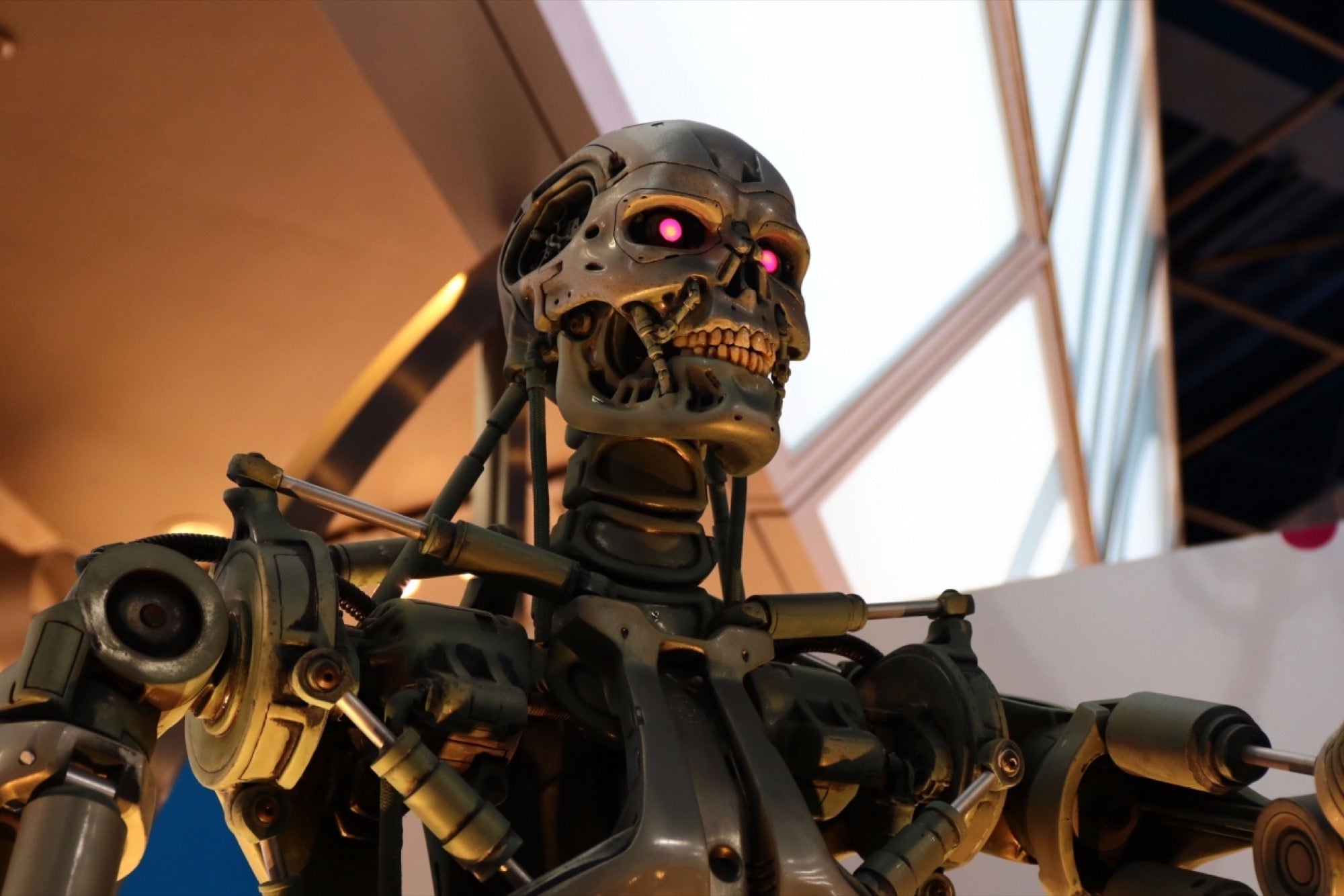Is a Robot the 'New Entrepreneur'?Hint: Check-out jobs are threatened. But service jobs with distinct cognitive skills are safe. "Terminator 2" isn't here yet.
BySam Madden•
Opinions expressed by Entrepreneur contributors are their own.

Want to know the future? Humans are history. When it comes to work, robots and artificial intelligence ("A.I.")arethe future.
At least that's what many people are saying, now that half our current workforce is estimated to be ripe for automation. Taking a step back, however, robotization in the workplace is certainly not something new. And, despite popular belief, robotization hasn't been strictly limited to factory production lines.
Related:5 Top Marketing Automation Tools for SMB's
Another misconception? When you look back throughout history, you can see that robotization isn't new; there have been continuous advancements in automation, impacting industries, workers and entrepreneurs of all kinds. Want to know more?
Workforce automation is not new.
In 1900, 41 percent of the U.S. workforce wasemployed in agriculture. With the shift in agriculture -- from raw horsepower and manpower to the Fordson tractor; then, to self-powered combines; then, to chemical fertilizers and more -- by 2000, just 1.9 percent of the U.S. labor force still worked on farms.
Another example was automation intelephone switchboards, which were introduced in the 1890s, causing call volume to skyrocket because of connectivity speed and improvements. About a third of the Bell system was automatic by 1930, displacing those once-iconic phone operators.
Glass-bottle blowingalso developed an automatic model; it was introduced in 1905. Immediately, glass-blowing output went from six men blowing 2,880 bottles in a day, to two men blowing 17,280 in a day, disrupting glass-production employment.
The message here is that across all types of industries, innovation and automation have been constant threats to employment for over a century. And that trend continues: Many types of industries today are methodically becoming automated over time.
The next wave in automation
Continued cyclical and structural declines in employment have been a hallmark of routine manual jobs. That means work which does not rely on direct human/client relationships to succeed, typically requires routine tasks and does not need high levels of adaptability to different situations.
These characteristics are true of jobs ranging from the tilling of a farm to the check-out counter of a retail store.
If we look at employment trends over the past 25 years, according to theNational Bureau of Economic Research(NBER), four out of the six major U.S. labor classifications have actually seen structural declines in the share of total U.S. employment:
- Machine operators/assembly (down 3 percent per year since 1980)
- Production/craft (down 1.9 percent per year since 1980)
- Transport/construction/mechanical/mining/farm (down .7 percent per year since 1980)
- Clerical/retail (down .3 percent per year since 1980)
Related:15 Tools to Create Automation in Your Small Business
What's more, there is no evidence that the above trends will reverse. Investment in A.I. and automation, in fact, is doubling each year. Venture capital investment totaled5.87亿年的2015美元(more than double the amount invested in 2014), as more money has poured into this space, accelerating automation within those same four labor classifications already seeing declining employment trends.
From driverless cars to automatic check-out counters to human-less factories, the robot market is expected to grow to $135 billion by 2019.
So, which entrepreneurs are safe from robots?
Interestingly enough, the two other labor classifications (according to the NBER) that have actually seen annualincreasesin U.S. employment share are:
- Managerial/technology/finance/public safety (up 1 percent per year since 1980)
- Service occupations (up 1.1 percent per year since 1980)
The first group might be expected -- after all, these are the technologists building out the new A.I. boom and the finance people funding it. However, the second classification typically comes as a surprise to most when they discover that service occupations are the fastest-growing (human) part of the U.S. workforce.
Service occupations are defined by the NBER as professionals such as handymen (and women), beauticians, cleaners, child-care workers and other home-service type jobs. In fact, the jobs these professionals do require distinct cognitive skills that make them fairly defensible from automation and A.I. disruption.
Service work requires a specific skill honed over time, a direct client relationship and a sense of flexibility (or adaptation) on a per-job basis. So, whether your client is an overactive dog in need of training or a rambunctious teen in need of tutoring, each client is different.
Related:4 Automation Techniques That Will Make You Rethink Recruitment
In my work with self-employed professionals, I speak withsmall business ownersof all types every day. My advice to service professionals and aspiring entrepreneurs? It's simple and clear:Nowis the right time to build a service business.
So, you can all rest easy:Terminator 2: Judgment Day是一种从消极impactin还有很长的路要走g the growth of the nation's $800 billion service economy.












